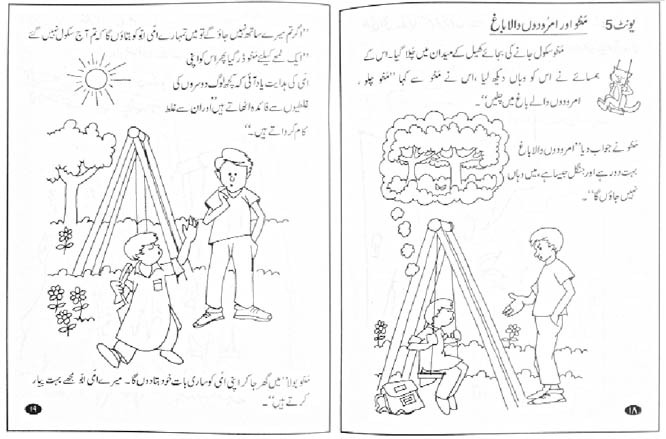
A recent report on increase in cases of child sexual abuse calls for an integrated not piecemeal approach to the problem

An eight-year-old girl goes to a shop. Her mother is standing at the gate of her home, watching her child who has reached the shop. Meanwhile, at home a toddler falls from charpoy laid nearby and the mother steps in to attend to that. In a matter of minute she is back at the gate, her eyes searching for her daughter but she is nowhere in sight. Where could she possibly go? There is only one street other than hers. Nobody could tell which way the child went.
This incident was reported in Kasur soon after the Zainab case.
"We sent the child to the shop and he/she never returned is a recurring story," says Advocate Atif Adnan Khan who works for Sahil, an NGO committed to protecting children against violence. Cases investigated have revealed the abductor is usually a person known to the child.
The Jan-June 2018 report recently issued by Sahil on sexual abuse in Pakistan, reveals 12 children suffer sexual assault everyday on average. According to this report, children in the age brackets of 6-15 years are most vulnerable. In the six-month period between Jan-Jun 2018, a significant increase has been seen in the overall cases of child abuse whereas cases of abuse of boys has increased by 47 per cent and of girls by 22 per cent. Of the cases reported, 74 per cent were from rural areas and 26 per cent from urban cities. Most of the cases were reported from Punjab -- 65 per cent.
To address this issue, Sahil has designed a programme by the name ‘Meri Hifazat’ (My Protection). A book developed by the same name, instructs children on how to protect themselves in different situations. The situations highlighted through illustrations deliver the message well. Sahil also gathered parents and families from 11 villages of Kasur and gave them a talk on how to protect children. Kasur district has been in news due to high number of child abuse cases reported from there.
Parental neglect is a major factor behind abuse. Train your children to share everything with you, keep a watch on them and their habits. Children should befriend children their age. They shouldn’t be sent out with anyone. People should notice who is going with a child, are some observations and suggestions of the Sahil team.
Sahil came across a child left on servants by the parents. He was abused by the cook, gardener and guard several times. "His faith in others has shattered. Abuse disturbs for life."
Not all sexual offenses are reported because of the stigma attached to it in our society. The abused and their family find it very hard to pursue the case in a court of law. "It is important to not let the morale of the victim’s parents get low. Our society is such that the victim is humiliated, not the accused.
"Parents come to court alone; with their children or close family members while criminals come with the area people. When a case of rape or sodomy is registered, influentials of the area ask the victim’s family to pardon the criminal. When parents refuse to do so, the people trying to bail out the criminal, turn against the victim," TNS learns from Atif Khan who has by now fought cases of nearly 40 such victims.
In Ferozewala, a couple cancelled a case of sexual abuse of their child on pressure
from their relatives when police was keenly working on the
case.
"There isn’t any female investigating officer though female police is there. Males investigate female victims of sexual assault. How difficult it gets for girls is anybody’s guess." The lawyer recalls how a nine-year-old girl wouldn’t look in the eye.
The system has changed over time. In 2017 the government set up a court to hear Gender-Based Violence (GBV) and also a Child Protection Court at the end of 2017 though the need for expert prosecutors remain. "Assistance from government to the victims is important. In the absence of strong prosecution, the accused go scott-free. The state needs to give free legal aid, protection to victim and witnesses, particularly in rural areas. Victims come to meet the authorities with high hopes but then, stop coming because they do not get justice," says Atif Khan.
The child rights activists emphasised the need to sensitise the police and more than anyone -- media. Sahil’s key person in Lahore, Ansar Sajjad Bhatti says, "Sahil does not disclose identity of victim. Confidentiality is important."
Sahil’s psychologist, Ayesha Faiz, says: "Media should not highlight the efforts to nab the accused so long as criminal is not arrested. It makes the task of finding the criminal more difficult. Also, naming rape victims on media has to stop. It makes things more difficult for the victims and their families who are already traumatised. The more you highlight identity of victims, the more it becomes difficult for them to recover. For them survival is an issue. All the families need is support."
But the problem is, we are reactionaries, as Atif Khan puts it. "We do something only when we get bad news. We do not have a system. We need to establish one -- not a piecemeal but integrated approach."